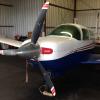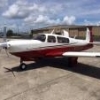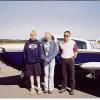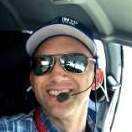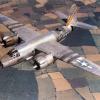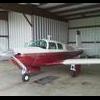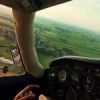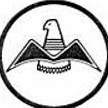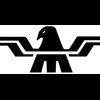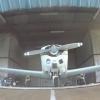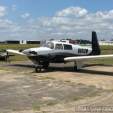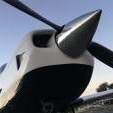Leaderboard
Popular Content
Showing content with the highest reputation on 11/17/2017 in all areas
-
First flight today from avionics shop ( Tomlinson Avionics @ KFMY). I have downloaded and read the G5 manual few days ago to get familiar with it. After short overview with the engine running, pushing and turning few buttons I was on my way home. Nothing into it. Works as advertised. I was able to follow magenta line in the AP heading mode and changed the course with the heading bug with the GPPS OFF on the G5. Nice and smooth. Then I have loaded RNAV 35 approach to KMKY and enabled GPPS on the G5. The AP stays in the heading mode. I never had it before. The thing flew the whole approach itself. Again very smoothly and precisely. And it was very bumpy up there. Since I don't have pitch control all I had to do is watch and trim for my altitude and control the power in order to stay on the glide slope. I know people say that there is really no value to the G5 ADI since I had to keep my vacuum AI but it is a big improvement to what I had before. Next I am going to shoot some ILS and VOR approaches but I hope I will never use them again.4 points
-
I don't know about other dinosaurs on here, but I began airplane ownership as my kids were finishing up college. Frankly, aircaft ownership is MUCH cheaper than tuition/college. Buy $175 worth of avgas? Think, "one textbook". $14,000 annual? Think, "one semester tuition". And aircraft ownership does not involve mandatory liberal-indoctrination! What a bargain!3 points
-
I detect sarcasm in your post. But to be fair, the announcement was about delivering the first Ovation Ultra, signifying that both the Acclaim and Ovation Ultras are in production and being sold. So it wasn't about selling an airplane as much as announcing to the world that the Ovation Ultra is now available. I also noticed that the Ovation Ultra was the cover picture and featured story in this month's Flying Magazine. It helps that a key writer for the magazine, Pia Bergqvist, flies an older Mooney so she is enamored with the brand. This is all good news to me.3 points
-
Did a mercy flight today, picking up an elderly woman in Rochester MN, flying her to Sawyer (Marquette). A/P heading mode went T.U., sending the plane the opposite way every time during vectors to 3 different ILS Approaches. My hand flying skills got a work out today. I've been on a intense 2 month push getting final bodywork done on the Lancair so only a couple Mooney flights in that time. I kept trying to call the Bonanza either a Lancair or a Mooney. Anyone listening had to have been laughing. Saw some really interesting clouds on the way to Sawyer. They had different twists to them, almost looking like fiber. Tom3 points
-
2 points
-
Because Al Mooney didn't design it that way, that's why. Same reason I like my Johnson Bar landing gear. You dang kids with yer new-fangled flyin' machines. No respect for the classics.2 points
-
I'm still not quite sure why college tuition for kids comes into play... My kids knew that if they were going to college they better get good grades in high school and test scores to receive scholarships. If not then they were going to learn how to be a poor college student and work their way through school. I haven't added up my costs through my first year (11 months) of ownership. Here are the rough ones: Loan - $233/mo Hangar - $400/mo (Like others I consider this a necessity) Insurance - $1525 (I had zero complex/retract hours, under 60 total hours, renewal after passing 200 total and 140+ in type came back at $1005) Fuel - $6,300 (Approximate, I haven't catagorized everything in Quicken yet but that would be 140 hours, 10 gal/hr, and $4.50/gal) Shoulder Belts - $1,000 (Some might consider it optional but I considered this a necessity. I did the install and I think paid my AP/IA $20 to look it over and sign it off.) Oil changes - $240 (Approximate, $20 filter plus oil, I did them myself, three oil changes) 500 hr Mag Inspection - $1375 (They were at about 430 hours when I bought it) Misc - $2000? I have not kept track of little things here and there on the plane That puts me right about $20,000 and does not include the first annual that is due next month To that you can add in some other stuff that was completely optional. I just had an EDM830 installed this week and I have a used SL40 going in next week to replace the Narco Escort II that was my #2 Nav/Com. I just fly VFR but plan on putting in a GPS/Nav/Com next year and starting on my IFR which will add to the bill. Contrary to some advice I bought the plane even though I could not have afforded to pay cash for it, nor pay cash to put an engine in it. I could if necessary do that using a home equity line of credit if needed. I looked at my finances and decided that I could afford $1,500 or so a month to chase down the dream of flying so I did it. I can't put a price on the memories and experiences that we have had since owning the plane, which I guess is why I don't really keep track of expenses to the penny. I am blessed to have a wife that not only enjoys the plane but encouraged me to get it. She also has never had any concerns about upgrades if it is to make things either safer or more enjoyable. She just flew commercial to UT to visit grandkids this week and was really wishing she was in our plane instead of wasting time in the terminal and then getting crammed into a seat next to whoever. It cracks me up when people say our planes are cramped inside, there is more room than flying coach class, even in the back seat of a short body...2 points
-
My wife and I have come to the realization the drivers around here drop 5 mph every time they see a curve, 10 mph when they see a policeman/state trooper, or 25 mph if there is a wreck on the other side of the freeway. All of the preceding regardless of the speed they are traveling.2 points
-
I don't want to see you in a CTLS either! But I don't want to see you be one of those guys who buy a plane and then can't afford to operate it. We have seen a few of them over the years on this site. I am a 26 year owner of the same plane and have kept detailed spreadsheets since Day 1 (ah, what happened to those days when AvGas was $1.25 per gallon?). I fly between 120 to 180 hours a year. On a good year, nothing breaks and I am on the lower side of the $20k range. On a bad year, I'm paying $1,500 for new spark plugs and a wiring harness, spending money to fix a radio problem or an annual that is double my normal expected cost. The upgrades and engine reserves I keep can be eliminated if you have plans on selling before either is needed. If you plan on owning the plane for a while, you really should factor them in. People often asked me how I funded my avionics upgrades -- simple, I budgeted for it by setting aside money for every hour I flew. My first upgrade after I did the autopilot in 1998 was in 2012 when I joined the world of GPS and glass cockpits. I saved for 14 years to have the funds to make that happen. If you can do some of the maintenance yourself (as I did for the first 7 years of ownership) and can do owner assisted annuals like raptor above can, you will lower your costs. If you are 5 thumbs and have a hard time with "lefty loosey, righty tighty", you will need to pay for someone to do those things for you. I wouldn't sugarcoat the costs. Keep in mind that a number of owners here are, er, ah, on the dinosaur side of evolution (myself included) and have worked for years to have the financials means to own a plane. When I bought my Mooney, I was making less than I pay today in taxes. So, it can be done but you need to go into it with your spidey senses on full alert.2 points
-
Actually, when I fly Mooney I can typically save 1-2 days of food and lodging over a comparable drive. Not to mention a time saver. My time used to be worth something, until I retired. So I figure I can save a few hundred per trip by spending 1-2AMU going Mooney.2 points
-
I found a $700 difference between the companies as I have been getting quotes. Not much in the scheme of things, less than 10% difference. Mine will go up north, having had the opportunity to meet and talk to Paul was the difference maker.2 points
-
These budgets are in line. Please please please put the thing in a hangar. It pays for itself over time with 1) the appearance of hangar elves, 2) protection from the elements and 3) other perks like the elves’ household items can be stored and save $250/month on storage in a seedy location. If the idea of a hangar will blow the monthly budget then group ownership or club participation may be the way to go initially. The utility of being able to pick up and go is why most went with the sole ownership route rather than clubs or partnerships. I like being able to just get things done without the pain of haggling about expenses. Example - last night I had to explain to the wife what an AMU is. First world problems indeed.2 points
-
How bad is your leak? Some are just annoying and don't affect airworthiness. Stick with one of the established folk. Paul Beck is a huge supporter of the mooney forum and summit, so I'd be inclined to wait for a slot to open with him. There's a reason he is so busy.2 points
-
Like Nielpilot, I also fly the "cheapest" bird in the fleet and generated total costs very similar to his over the last year. I flew a bit less (100-120hrs), spent more on hangar, a tad less on maintenance, differing amounts on the sundries, but all told 20-25k is about right. Only realistic way for me to save significantly would be to get an A/P license. I do my own very basic maintenance (oil/filter, clean/rotate/gap plugs, borescope checks) but don't have time to do more. Now that my plane is up to snuff in most ways, I am budgeting 20k per year going forward plus 25k saved for the fateful day when overhaul comes. In relation to these recurring costs, the plane purchase itself is insignificant.2 points
-
Assuming cheap ($3/gal) gas, and 10 gal/hr fuel burn it seems that you are only flying 20 hour/year. If that's the case, then your out of pocket flying is costing about $340/hr. Maybe you need to fly more or get a partner? In 2016 87Q was flow 160 hours. Maintenance included a cylinder, AP elevator servo, nose truss replacement and ADS-B install. Our costs were as follows:2 points
-
I kind of agree with what others have said. If I had to finance my airplanes I wouldn't have bought them. We had one guy here who financed an airplane (C model) and later found corrosion and said he was going to have to total the plane out. Had to explain to his wife he'd be making payments on a plane he didn't have for years. Over the years I've had a few "holy crap" unexpected repair bills in the 5 figure range. I'd hate to have to figure payments on top of that. -Robert2 points
-
Thanks, Yea, I have screen shot all my check rides. I show them to other students who may be preparing to go for the same rating and it seems to help them know what to expect. But, it's false... As I mentioned earlier, I expected we were going to do the ride at another airport that is uncontrolled... I had not planned any of it, but just rolled with it. I nearly blew it on my forced landing. I had practiced many many times on various smaller 3-5k foot fields in the area, but I had never practiced it at my home base before (2 mile charlie airfield). I always knew the big runways will trick you into thinking you are closer than you really are and this time it did. I realized pretty quickly that I wasn't going to make it, so I told him that the size of the runway environment had tricked me and I had not practiced it there before and that I would like to make this landing my short field spot landing and he said ok... I'm glad he let me go on that... The following forced landing attempt, ATC kept wanting to vector us on a five mile pattern. I was about to key ATC and ask to fly a tighter pattern for the simulated forced landing, but before I did, the examiner told me to just fly over there.. At the time, I didn't compute that when ATC instructs to turn down wind, it is not a heading assignment. Now it makes sense, but anyway, we got closer and did the forced landing successfully. For the commercial ride, you have to touch down within 200 feet of the intended landing spot. Again, I didn't know this until the oral an hour before flying. It would have been nice if I had clearly understood that ahead of time, but I was able to get my steed in ground effect and float to within 200ft of touchdown. Again, at this airport, I usually touch down just after the numbers, but on short final, I realized he was expecting me to land on the aim point runway marking, which is another 1000ft or so.. I floated as far as I could and made it inside the allowable limit and the examiner gave a little cheer.. Other than that, it was piece of cake!2 points
-
What @Raptor05121 said. You're always money ahead buying the plane you want rather than one to upgrade. I don't budget for engine/overhaul. I budgeted for a plane that I could afford to pay cash and afford an engine when it's required. It might still make sense to finance, but I wouldn't finance because it was out of reach otherwise. I started with a C and after two years and 400 hours, I'd learned two things. First, I was definitely using the plane. 200 hours per year of almost all cross country flying is perfect for a Mooney. Second I realized I could afford a bit more than the C. So I sold it an bought a 252. Then I did get a little carried away with the panel, but didn't pay retail for any of it and haven't missed a mortgage payment or bounced a check, and we've still got Ramen noodles in the pantry, so I think we'll make it.2 points
-
2 points
-
Perhaps if I had the HP of a 252 I would not care. Besides this here is a vintage question not for the new fangled flyin machine types1 point
-
1 point
-
Speaking for myself only... I like how clean it looks. One less thing hanging off and looking ugly. Sent from my Pixel using Tapatalk1 point
-
Seems like the Vintage folks are very attached to their retractable steps I would never understand why not just install a fixed step with the fairing that makes it a non-issue wrt to drag and be done with it? i.e. like the rest of the modern fleet? Of course I am assuming a fixed step can be installed in the vintage birds like the modern Mooney's but I don't know specifics and never see that option discussed and curious why not. Incidentally, although I am 100% glass, I kept my vacuum pump for my speed brakes as well. The pump weighs next to nothing so it didn't bother me at all, but I was very happy to pull the electric standby pump out of the back which did add up to some significant weight.1 point
-
Just a update I have checked with a few folks recommendations from this post and I have had better quoits. Waiting for a few more call backs but the first is $3,800yr Thanks again for all your help. Danny1 point
-
Whats funny is how many drivers consider themselves to be very good or excellent drivers. Since we dont fly in such close proximity as we drive and as I have such a limited amount of exposure to other pilots i wonder if the percentage of delusianal pilots that think they are gods gift to aviation is as high as there are drivers to driving.1 point
-
Was it actually leaking or seeping during the annual or had stains marks? That's the only way anyone would know.1 point
-
I won't be back till late June or possibly sometime in July. I PCS in August to Rucker though that's probably about the same distance for you versus SAV, hopefully we can link up before I move though. __________________________ It seems like my budget is fairly accurate, though some ~100 hour C-E owners are listing 25K+ annually, I think that may be the case on years with upgrades and/or abnormally high MX years. The comments to take my income after bills and that's what my plane fund will be may end up being the case some months, but if my initial plan required all of my discretionary income I don't think it would be wise to purchase a plane. Planning for 15K+ in reserve initially, some said 10k+, seems like a safe bet so I don't end up paying for a large paper weight that is unable to fly. I also understand a PPI at a MSC will help prevent this too. As for a hanger, I agree that is the better option and I will attempt to secure one, but with the short stays for the next few years of my career I want to have a "decent" plan when a hanger is not available. I certainly hope to help with annuals to cut MX costs and I should have no issue with most of the FAA approved owner level MX either. I was also looking at a Flight Design CTLS to just fly around in, please don't let me do that to myself. I plan on doing a decent amount of X-country and an IFR capable platform makes more sense, though the low level scud running I'm occasionally doing out here under goggles certainly helps make me a better MVFR pilot, anyone familiar with ICAO SVFR? I sure am. Crunching the numbers acquisition costs are ~2x a M20C, but the MX and fuel costs are cut in half or more which means long term ownership has the CTLS coming in much cheaper. I appreciate the comments and advise, I'm a firm believer that learning from others experiences prevents foolish or headstrong mistakes on my end...sometimes.1 point
-
Good question. I guess it depends on how old your Ovation is. For some, the jump to the latest G1000 may be enticing...I know there are some concerns about having the fully-integrated panel compared to piecing something together with components, so it's a personal choice. I do like the G1000 but recognize its limitations. I think the pilot's side door is a big draw, not so much for the pilot as for all the passengers as it helps with ingress/egress...and the stretched door makes it easier to get in the back. There really isn't a performance difference in actual flight, I don't think. There's no doubt that it's an evolution and not a revolution, but I think there are some worthwhile upgrades. Without having some legitimate way to write it off as a business expense, I wouldn't probably spring for a brand new model, but perhaps in a couple of years if one comes available I'd be interested. But I don't suspect Mooney is targeting the current Ovation owners as much as the broader market, so the push to compare against other models makes sense.1 point
-
The "short rudder" (which is what your C is equipped with) is plenty adequate in my opinion, it's just that the long rudder offers more control authority. I cannot envision a scenario where a pilot would ever say "this would be great flying airplane if only it didn't have so damn much rudder authority". There's no downside to the full length rudder, but that doesn't make the short ruddered birds bad.1 point
-
Older vintage Mooney rudders extend from the horizontal stabilizer to the top of the tail. On later vintage Mooneys, like my 1970 C, the rudder also extends below the horizontal stabilizer, to the bottom of the tail cone. Larger rudder area means more force for crosswind correction.1 point
-
If you fly it with an inoperative pump, the plane will "probably" make it just fine. Personally, I wouldn't consider a flight without the electric pump. Depending on the equipment list for an E, it may be illegal.1 point
-
1 point
-
You should check out Van Allen Airmotive in Allentown PA. Dave Van Allen opened up shop there a year or two ago and and does the full strip and re-seal professionally. When i was in there having a cylinder replaced another MS member (orionflt) was having a strip and seal done - said he did a great job. Not a short flight from NE, but you've got commercial flights right out of Allentown or it's a quick drive to Baltimore for cheap Southwest flights.1 point
-
Advanced Aircraft in Troutdale, OR has a good track record fixing tank leaks. They fixed mine the same day (even though one of the other shops previously mentioned in this thread missed it at Annual two weeks prior).1 point
-
They don't ask you for a complete list of appliances. For example, they know Mooney installed a Bendix ignition switch. They have specific questions they'll ask for your Mooney. In mine the factory gave a choice in vendors for some instruments like the altimeter, ELT etc so they wanted to know which models of these were installed and I recall similar on seat belts. But it was far from me having to list every appliance that Mooney installed - they have that mostly figured out. My effort was less than a couple hours. You have to tell them about your mod's but you will still get ADs for items that don't apply, perhaps like an airfilter (or any common appliance that could be installed on your bird), that you can resolve as not applicable etc. But you still want those to show they're not applicable rather than ignored. They may not be perfect, but there is way too much room for missing things relying on doing a FAA web site search. If it was as easy or even as reliable as this thread suggest, IA's would not be paying for a service to do it for them but since they are signing off on their research as being complete they want to ensure its 99% complete (and truthfully, they can share if not delegate the liability with the service provider i.e. its good insurance).1 point
-
I would add that if I was having a reseal I'd insist that the tanks be done one at a time, with a check for corrosion after each strip. There's horror story elsewhere here where wing corrosion was discovered after the stripping and because both tanks were done, the bird was trapped at the stripping facility.1 point
-
Hi Chris, I talked with the FAA today on your project and will send the 337 in tomorrow. They are helpful but quite busy. Bob, I’ll need some info from you next week as I’ll submit your 337 later next week. Right now, I think our original plan on yours will still work. Thanks, David1 point
-
Paul, you stated it quite well. N6XM had a gear collapse as just as I took the runway for takeoff (very slow taxi speed). The longer version of this story can be found here: https://mooneyspace.com/topic/20619-landing-gear-collapsed-during-taxi/?tab=comments#comment-311843 I would not have settled for a prop strike inspection. My insurance co offered a payout of the insured value ($50k), and also offered $36k if I wanted to keep the airplane and fix it. I thought the insurance company's offer was very fair, however given the repairs required to the airframe, engine teardown, new prop, and personal reasons, I elected to let it go. That was a fine airplane, and I do believe one of the best C models out there, but after struggling for three months to keep it or not, I let the insurance company have it. Now I have a J, and life is once again, good.1 point
-
1 point
-
There is a great deal to love about Mooneys from 1966 +/- a year or two: the Johnson Bar Manual Landing Gear, Manual/hydraulic Flaps, and a sexy Vacuum actuated Step that's there when you need it and tucked in all comfy when you don't.1 point
-
Not sure if your numbers include reserves for engine and avionics. I don’t budget, my actual costs run between $20AMU and $28AMU depending on how much flying I do and how many issues I have during the year. Another thing I keep track in the costs are all the subscription costs and aviation extras. People have a way of kidding themselves into believing that the other expenses are not aviation related (like databases, headsets, iPad app subscriptions). I always ask, if I didn’t own the plane would I incur this expense. If yes, it gets counted in. Sent from my iPad using Tapatalk Pro1 point
-
Thanks for that reminder... Hi Paul, Please add me (as KFUL) and send me the link. -dan1 point
-
Whatever you budget, forget it. Once you get the plane, then you start jones’n for upgrades. If you need to finance purchase, I don’t recommend getting a plane. Or get a make/model that you can afford with cash. It will be too much of a drain on your resources and set you up for tough decisions ahead. Just don’t buy anything thinking you can fix this and that and come out ahead.1 point
-
Hi MooneyMark, The check valves can and most likely are leaking. The check valves stop oil from flowing to the turbo when the engine is off. If the check valves leak the oil will flow from the engine to the turbo after shutdown and pool. On startup it will blow out the pooled oil. So it's not just the hinge location. Have your mechanic remove the check valves and with the valve arrow pointed up put solvent in the top and wait to see if the solvent leaks through. That will tell you if they are leaking. You should always look at the lower cost stuff before moving to the big ticket items. Jim1 point
-
@DanM20C, In my turbo experience (150hrs M20K and 1000+hrs in race/street cars) no, there should be ZERO oil making its way past either shaft seal (ceramic or step ring). Like you, I take a quick fingertip swab of the exhaust pipe at pre-flight as I also check for looseness. I have built, re-built, destroyed and replaced many a turbo over the years and there should be no oil visible outside of the sealed center housing of the turbocharger. Ron1 point
-
This thread makes me want to go lookup a similar thread I started before beginning my Mooney transition training last February. Almost all my flying previous to buying the Mooney was tailwheel. I even started threads on here and another pilot forum asking if I was biting off more than I could chew with such a wild idea as the unobtainable goal of learning to fly a Mooney. In the course of my lack of self confidence, I saw that there was going to be cross wind on the day my C was to be delivered and thought I was doomed. At the time there were two schools of thought regarding crosswind and everything else about the impossible task of a non Mooney pilot being so brazen as to believe that he could ever transition without an instructor with a thousand hours or more and at least 100 students successfully transitioned to the impossible to fly and mysterious Mooney. The other school of thought was those who shrugged their shoulders and said something like “what’s the big deal it’s just another airplane?” I read all the posts about the early C’s not having enough rudder authority and all the other warnings implying that I would die in a crosswind. All the time while selecting flowers I did not consider my own landing technique in my little Cessna 140 in which I had logged about a thousand landings to include gusty and variable crosswinds. My crosswind technique from the very beginning was “ just enough rudder to keep it parallel to the runway and just enough aileron to keep it on the centerline and not drifting one way or the other.” As luck would have it, the day my instructor delivered the plane to my home field and began my transition training the wind was forecast to change to a gusty crosswind. In addition, it was a day of pretty choppy winds. After all the you will die advice from the naysayers that doomed the lowly Cessna 140 pilot to sure death I notified the funeral home of the assured business and got in the plane anyway. We started doing landings and I worked to learn the landing gear and getting the feel of the airplane in the flair. After most of the day of landings less than perfect, but acceptable, we knocked off for the day, had dinner and I put him in a hotel for the night. Once I got to the house that night, it occurred to me that I had been crosswind landing in a 13 knot or more gusty crosswind all day and was still alive and really the crosswind was a non event not noticed due to focusing on everything else. Although I was not greasing it in as I would have liked, this thing was much easier to deal with in a crosswind than the little putt-putt I had been flying all this time. NOW!.... I said all that to make this point: I realize that there is a school of thought and even verbiage in Airman’s manuals that pretty much dictate crab into the wind and straighten up at the last minute, BUT using the crosswind technique I was taught by the old school tailwheel instructor allows you to handle all the crosswind that a normal human being would want to fly in. I join those who recommend transition training be done by a Mooney savvy instructor, but if you are experienced at crosswind landing with the technique I described, crosswinds will be nothing new at all and if you can do them in a taildragger, or the same technique in any airplane, you won’t even know there is a crosswind.. You will just put her down. Landing a Mooney in a crosswind is like anything else with a Mooney. Just learn the right techniques and go enjoy yourself. As I recall Mooney indicated that an 11 knot crosswind is not a crosswind in an early model. I contend that the number is much higher than that if you use the right technique.1 point
-
Flew up to KCNY with my son yesterday. Spent the day hiking Arches National Park. Beautiful place! We flew up over the Grand Canyon, then over Lake Powell, and up over the Canyonlands National Park. Had a monster tailwind - 162-168kt groundspeed for most of the flight. In descent I saw over 200kts. Of course, that tailwind became a headwind on the way home and we were cruising at a Model "C" like 108kt GS.1 point
-
1 point
-
Sounds like an oil discussion - everyone has their favorites. I went with Garmin. I had dual 430s (non-waas) and upgraded to a GTN 750 with a GTX 345 for my ADSB. The 650 and 750 have the ability to cross talk to a 430 but i use my (single) 430 as just a Nav/Com and GPS backup. Garmin's are more expensive. The Touch interface is very intuitive on the 750 and 650 - I love it.1 point

